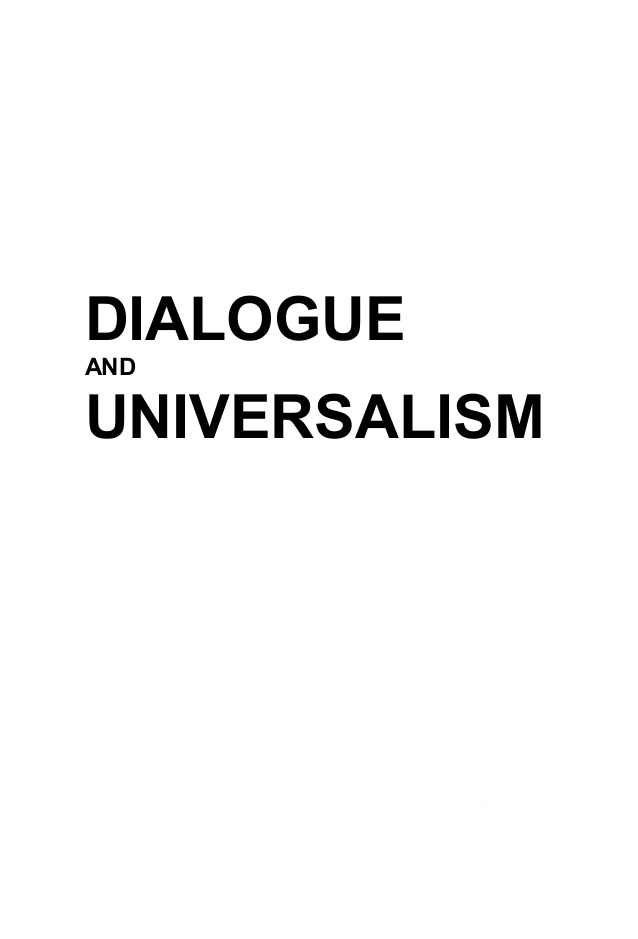THEISTIC AND NON-THEISTIC MODES OF DETACHMENT FROM THE PRESENCE OF THE INFINITE
THEISTIC AND NON-THEISTIC MODES OF DETACHMENT FROM THE PRESENCE OF THE INFINITE
Author(s): Michel DionSubject(s): Philosophy
Published by: Instytut Filozofii i Socjologii Polskiej Akademii Nauk i Fundacja Filozofia na Rzecz Dialogu
Keywords: Detachment; Infinite; Master Eckhart; Friedrich Schleiermacher; Tibetan Buddhism; Martin Heidegger
Summary/Abstract: In this article, we will describe two theistic models of “paradoxical detachment” from the Presence of the Infinite, implying the coexistence of attachment and detachment. We will analyze two forms of Christianity-based paradoxical detachment: (a) being dependent on the Ground of soul, while being detached from the representations of the Infinite (Master Eckhart); (b) being absolutely dependent on the Infinite, while being detached from any religious morality (Friedrich Schleiermacher). The non- theistic mode of detachment from the Presence of the Infinite requires an absolute detachment. We will examine two forms of absolute detachment towards the Presence of the Infinite: on one hand, the all-encompassing emptiness in the Kagyu and Gelug lineages of Tibetan Buddhism; on the other hand, the Heideggerian notion of “groundless abyss.” In the Kagyu and Gelug lineages of Tibetan Buddhism, being absolutely detache is searching for the Enlightenment, while being detached from all concepts. Heideggerian notions, while remaining in a non-theistic way of thinking.
Journal: Dialogue and Universalism
- Issue Year: 2021
- Issue No: 1
- Page Range: 233-254
- Page Count: 22
- Language: English

